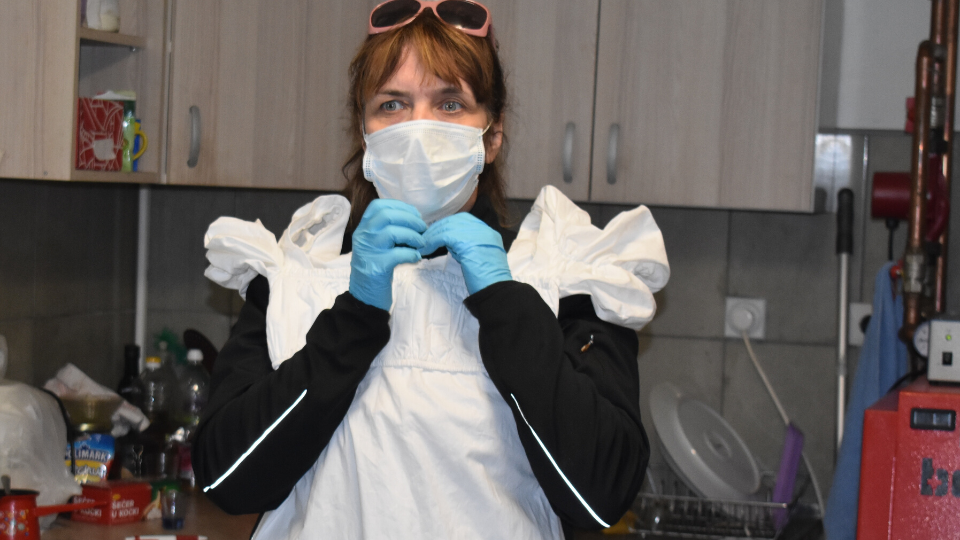From Where I Stand: “Rural women are now facing an extra burden of child-rearing, housework, and other unpaid care”
Snezana Zivadinovic heads the Association for the Development of Creativity in Aleksinac, Central Serbia, and is a vocal advocate for an equal distribution of care and domestic work, especially in rural areas. The coronavirus has increased the demand for care work in many families in rural areas of Serbia where the workload falls heavily on women and girls. Zivadinovic speaks to UN Women about the situation and how her NGO provides solutions under the UK-UN Women programme ‘Redistribution of unpaid care work’.Date:

![]()
The outbreak of COVID-19 brought many challenges to the already difficult life of rural women around Aleksinac. With relative isolation from markets, infrastructure and services, including health and education, villages in this region were hit hard by the coronavirus pandemic and the imposed state of emergency. In addition to the existing challenges, which have amplified, new ones appeared, mainly because of existing gender roles and responsibilities.
Older rural women are especially at risk during the crisis as some of them live alone in remote and inaccessible villages. Previously they relied on their neighbours' good will to bring them groceries and other essentials, but with the lockdown measures imposed, this is no longer possible.
On the other hand, rural women living in households with more family members at home all the time are now facing an extra burden of childrearing, housework, and other unpaid care. There are more dishes to be washed, more laundry to be done, more food to be made, more cleaning for all. There is more taking care of those who are not feeling well; more fear around how to take them to hospital as public transport is not working; and more standing in lines in front of pharmacies and grocery stores. All this has led to increased stress and fear among women in rural areas and therefore they need comprehensive and diverse support.
Through different field visits, we tried to listen to these women and learn about their needs so we can address them properly. As a result, we have developed a package of different support services based on their needs and created a team to support it. This included everything from medical advice and psychosocial support to informal and friendly chats. The only rule we have is to always be positive and encouraging, and also to speak in a plain informal way, yet professionally. This approach creates a feeling of closeness and special connection.
The women we worked with really got attached to us, to the people they met over the phone. They would always ask for “their” Irena, Jelena, Saska, Sneska, Sladja or Javorka. And, these conversations over the phone are something they loved most. To know that someone is there for them, that they are not alone and that they have someone to just listen to them, to share their concerns with, but also some happy thoughts and moments.
It is hard to measure what this support means to them, but their feedback and expressions of gratitude over the phone are assuring us that we are doing the right thing.”
Snezana Zivadinovic and her team at the Association for the Development of Creativity conducted over 120 different field visits to map out the needs of rural women during the COVID-19 pandemic and to develop targeted services. So far, they have reached out to around 400 rural women with medical and psychosocial support. This work is supported under the UK-UN Women programme ‘Redistribution of unpaid care work’.